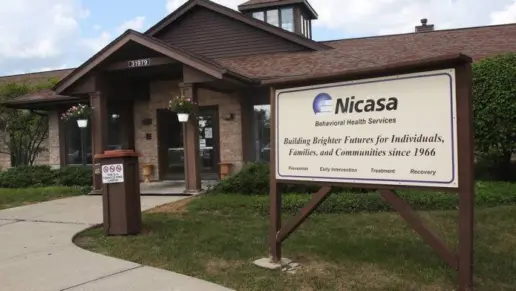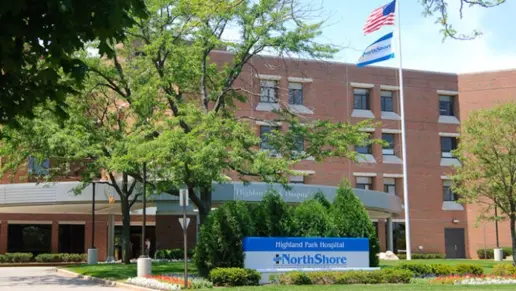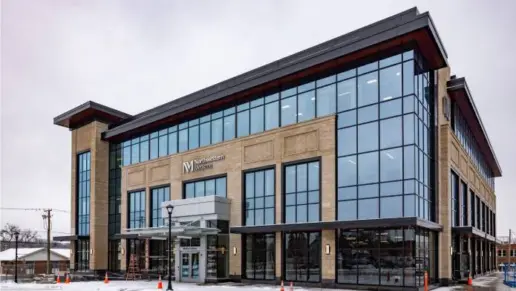From May 9 to May 15, I was a patient at UChicago Medicine Ingalls Memorial Inpatient Behavioral Health Center. I admitted myself after I purchased a rope and told my family I was going to hang myself. Nothing about the care that I and, from what I observed, the other patie ...
About Ingalls UChicago Psych
UChicago Medicine Ingalls Memorial in Harvey, IL offers outpatient rehab treatment programs for individuals who have substance use and compulsive control disorders. Patients undergo a comprehensive assessment, after which Ingalls behavioral health professionals recommend the appropriate length and level of care.
Located in Harvey, IL, UChicago Medicine Ingalls Memorial offers a variety of outpatient alcohol and drug abuse treatment programs. The goal of these programs is to help participants achieve sobriety, learn new coping skills, identify triggers, and connect with support groups. Programs include intensive outpatient programs (IOPs), partial hospitalization programs (PHPs), inpatient treatment, medically monitored intensive inpatient services, and medically managed detox.
The Ingalls intensive outpatient program (IOP) offers three hours of treatment four days per week. Participants attend group therapy and receive medication assisted treatment.
The partial hospitalization program provides additional structure for participants. Patients engage in multiple group therapies that focus on life skills, addiction education, and relapse prevention. Treatment takes place eight hours a day, five days per week.
The bedded partial hospitalization program allows participants to stay onsite. Treatment includes group, individual, family, and 12 step programs. Participants engage in multiple groups each day, and some receive medication assisted treatment.
This level of treatment provides 24/7 care. Medical supervision is provided for withdrawal issues or emotional problems. Participants attend daily group therapies, 12 step programming, family therapy, and individual therapy.
Ingalls Memorial medically managed detox program provides 24 hour nursing care and daily physician supervision for severe withdrawal, medical problems, or emotional problems. Medication is used to ease withdrawal symptoms, and counseling is provided to engage patients in treatment.
Rehab Score
Gallery
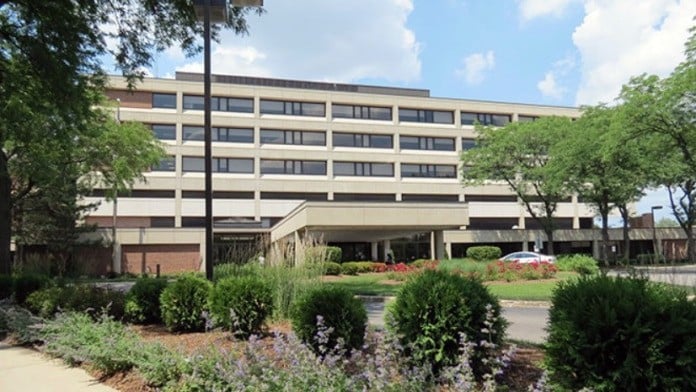
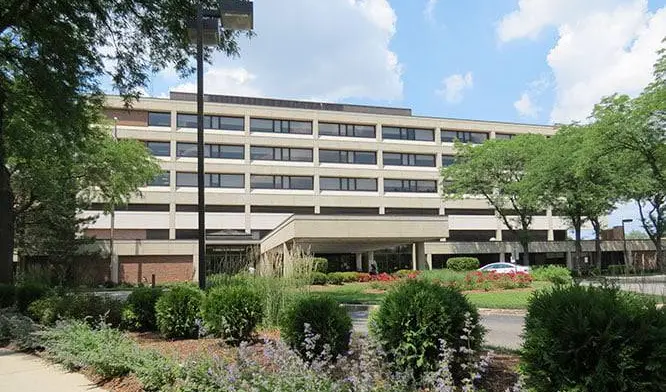
Location
Accepted Insurance
Other Forms of Payment
Medicaid is a state based program that helps lower-income individuals and families pay for healthcare. Medicaid covers addiction treatment so those enrolled can use their coverage to pay for rehab. When a program accepts Medicaid the client often pays very little or nothing out of their own pocket.
Private insurance refers to any kind of healthcare coverage that isn't from the state or federal government. This includes individual and family plans offered by an employer or purchased from the Insurance Marketplace. Every plan will have different requirements and out of pocket costs so be sure to get the full details before you start treatment.
Self-pay involves paying for treatment out of your own pocket. You can use savings or credit, get a personal loan, or receive help from family and friends to fund your treatment. If you don't have insurance or your insurance plan doesn't cover a specific program, self-pay can help ensure you still get the care you need.
Financial aid can take many forms. Centers may have grants or scholarships available to clients who meet eligibility requirements. Programs that receive SAMHSA grants may have financial aid available for those who need treatment as well. Grants and scholarships can help you pai for treatment without having to repay.
Medicare is a federal program that provides health insurance for those 65 and older. It also serves people under 65 with chronic and disabling health challenges. To use Medicare for addiction treatment you need to find a program that accepts Medicare and is in network with your plan. Out of pocket costs and preauthorization requirements vary, so always check with your provider.
Military members, veterans, and eligible dependents have access to specific insurance programs that help them get the care they need. TRICARE and VA insurance can help you access low cost or no cost addiction and mental health treatment. Programs that accept military insurance often have targeted treatment focused on the unique challenges military members, veterans, and their families face.
Addiction Treatments
Levels of Care
Treatments
Many of those suffering from addiction also suffer from mental or emotional illnesses like schizophrenia, bipolar disorder, depression, or anxiety disorders. Rehab and other substance abuse facilities treating those with a dual diagnosis or co-occurring disorder administer psychiatric treatment to address the person's mental health issue in addition to drug and alcohol rehabilitation.
Mental health rehabs focus on helping individuals recover from mental illnesses like bipolar disorder, clinical depression, anxiety disorders, schizophrenia, and more. Mental health professionals at these facilities are trained to understand and treat mental health issues, both in individual and group settings.
Programs


Clinical Services
Cognitive Behavioral Therapy (CBT) is a therapy modality that focuses on the relationship between one's thoughts, feelings, and behaviors. It is used to establish and allow for healthy responses to thoughts and feelings (instead of unhealthy responses, like using drugs or alcohol). CBT has been proven effective for recovering addicts of all kinds, and is used to strengthen a patient's own self-awareness and ability to self-regulate. CBT allows individuals to monitor their own emotional state, become more adept at communicating with others, and manage stress without needing to engage in substance abuse.
Group therapy is any therapeutic work that happens in a group (not one-on-one). There are a number of different group therapy modalities, including support groups, experiential therapy, psycho-education, and more. Group therapy involves treatment as well as processing interaction between group members.
In individual therapy, a patient meets one-on-one with a trained psychologist or counselor. Therapy is a pivotal part of effective substance abuse treatment, as it often covers root causes of addiction, including challenges faced by the patient in their social, family, and work/school life.
Trauma therapy addresses traumatic incidents from a client's past that are likely affecting their present-day experience. Trauma is often one of the primary triggers and potential causes of addiction, and can stem from child sexual abuse, domestic violence, having a parent with a mental illness, losing one or both parents at a young age, teenage or adult sexual assault, or any number of other factors. The purpose of trauma therapy is to allow a patient to process trauma and move through and past it, with the help of trained and compassionate mental health professionals.
Whether a marriage or other committed relationship, an intimate partnership is one of the most important aspects of a person's life. Drug and alcohol addiction affects both members of a couple in deep and meaningful ways, as does rehab and recovery. Couples therapy and other couples-focused treatment programs are significant parts of exploring triggers of addiction, as well as learning how to build healthy patterns to support ongoing sobriety.
Research clearly demonstrates that recovery is far more successful and sustainable when loved ones like family members participate in rehab and substance abuse treatment. Genetic factors may be at play when it comes to drug and alcohol addiction, as well as mental health issues. Family dynamics often play a critical role in addiction triggers, and if properly educated, family members can be a strong source of support when it comes to rehabilitation.
Life skills training in Illinois gives you the tools you need to meet daily demands. These fall into three main categories: personal skills, interpersonal skills, and cognitive skills. While in rehab, you'll work on each of these areas as part of your recovery treatment.
Without nutritional balance, you can't achieve overall health. Nutrition therapy restores this balance by providing healthy meals and teaching you how to choose foods that support recovery. It is an important part of most rehab programs in Illinois.
Recreational therapy in an addiction treatment program in Idaho helps you rediscover the joy and build healthy habits you can continue as you reenter the community. Activities can include gardening, yoga, and group games that all promote relaxation, improve mood, and encourage interaction and community building. These factors are crucial for sustaining long term recovery.
Amenities
-
Gym
-
Wifi
-
Residential Setting
-
Private Rooms
Staff

Executive VP & CFO

Senior VP & General Counsel

VP & CMO

Executive VP and Chief Medical Officer

Senior VP and CIO
Contact Information
15434 Paulina St
Harvey, IL 60426





